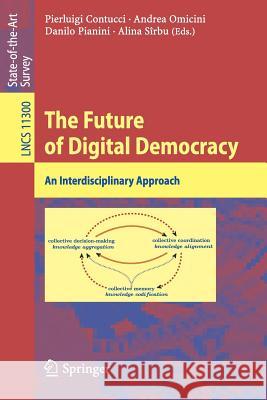The Future of Digital Democracy: An Interdisciplinary Approach » książka
The Future of Digital Democracy: An Interdisciplinary Approach
ISBN-13: 9783030053321 / Angielski / Miękka / 2019 / 101 str.
Digital democracy is a hot topic nowadays, its relevance growing along with the impact of computational platforms on our(political) life. Communication is the basal fabric on which society is defined, and it appears obvious that the civic organisation and politics itself should take the opportunities the "digital revolution" offers. Institutional inertia, nevertheless, causes large delays in updating and adapting. Therefore, the balance between participation and delegated representation is now facing a crisis. A thorough understanding of the factors involved in participation is a first step towards providing solutions. Using the Internet to fill the gap and build a digital democracy provides an opportunity, along with several risks that need to be carefully analysed. It needs to be implemented using a fully inter- and trans-disciplinary perspective. The six contributions included in this State-of-the Art Survey present research in the field of social sciences as well as mathematics and computer science and aim at contributing to a better understanding of the potential and dangers of digital democracy, helping readers go beyond the misunderstandings, the misconceptions,and the conceptual and practical abuses that the very notion of democracy is undergoing during this age of technological revolution and social turmoils.











